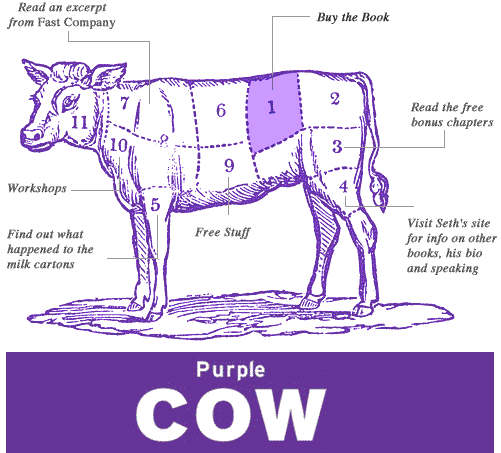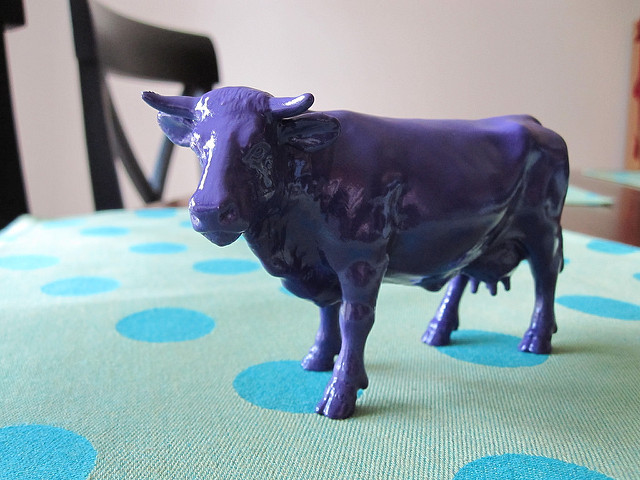Work has been giving me an emotional beat down with fists wrapped in quarters lately. Last month, I’ve nearly torn out my eyebrows over the bullshit monotony of scheduling, rescheduling, and emailing. It’s an assistant’s mental equivalent of “I-pick-stuff-up-I-put-stuff-down.” At the end of a day, I’ve spent 90 percent of my time pushing around paper, minus the paper.
This isn’t a rant against who I work for, my role, or my industry. I understand this shit has to get done, and why I’m the one shoveling it. My “win-days” have become those when I manage to carve out 30 minutes of my own to do Deep Study of Literary Option Agreements. For example, last week I sat down and studied Force Majeure and Claim Extension language until I understood it.
Typically my eyes rolled into the back of my head every time I reached any Force Majeure language. Now I understand that while a claim can be capped at 12 months (meaning someone has 12 months to sue or get off the pot) once a claim enters litigation an Option is suspended until it’s settled or litigated — there is no cap.
Everyday, people must engage in an emotional joust against the minutiae. Is there any question to why people stop caring about creating extraordinary work? Apathy is the result of getting ground down by the bullshit tasks we endure, and there are two ways it’s going to go:
You either let it stomp you flat.
Or you grind back.
Surrounding myself with self-development helps with the latter.

I finished PURPLE COW by Seth Godin. A remarkable book about being remarkable, covering facets from nearly every industry (though, now that I think about it, I’m not sure if entertainment was covered). Nonetheless, it’s something to inoculate us in our quest to develop into who we want to be and achieve our own goals.
As always, below are noteworthy sections from the book. Bolding is mine.
Remarkable marketing is the art of building things worth noticing right into your product or service. Not slapping on marketing as a last-minute add-on, but understand that if your offering itself isn’t remarkable, it’s invisible.
The new rule is: Create remarkable products that the right people seek out.
The marketer of yesterday valued the volume of people she could reach. Mass marketing traditionally targets the early and late majority because this is the largest group. But in many markets, the value of a group isn’t related to its size — a group’s value is related to its influence. In this market, for example, the early adopters heavily influence the rest of the curve, so persuading them is worth far more than wasting ad dollars trying to persuade anyone else.
I don’t think there’s a shortage of remarkable ideas. I think your business has plenty of great opportunities to do great things. Nope, what’s missing isn’t the ideas. It’s the will to execute them. My goal in PURPLE COW is to make it clear that it’s safer to be risky – to fortify your desire to do truly amazing things… One of the best excuses your colleagues will come up with, though, is that they don’t have the ability to find the great idea, or if they do, they don’t know how to distinguish the great idea from the lousy ones.
If a product’s future is unlikely to be remarkable — if you can’t imagine a future in which people are once again fascinated by your product – it’s time to realize that the game has changed. Instead of investing in a dying product, take profits and reinvest them in building something new.
It’s not an accident that some products catch on and some don’t. When an idea virus occurs, it’s often because all the viral pieces work together. How smooth and easy is it to spread your idea? How often will people sneeze it to their friends? How tightly knit is the group you’re targeting – do they talk much? Do they believe each other? How reputable are the people most likely to promote your idea?
Cheating
- Jetblue – low-cost structure and underused airports give them unfair adv
- Starbucks
- Vanguard – low-cost index funds makes it impossible for a full-service broker to compete
- Ducati – they don’t make motorcycles for the entire market, they can specialize in high-profit, amazing bikes, which sell out every year
- To their entrenched but nervous competitors, these companies appear to be cheating because they’re not playing by the rules. Why aren’t you cheating?
It’s easy to look at the idea diffusion curve and decide that the juicy, profitable, wonderful place to be is right in the center, where all the people are. However, that’s rarely true. Often, the valuable slices are located to one side or the other. What this bank might realize is that b focusing on these innovative customers, the bank may be able to bring in even more highly profitable risk-seeking customers, leaving the slow and declining sector to seek other (less profitable) banks. Differentiate your customers. Find the group that’s most profitable or most likely to sneeze. Figure out how to develop/advertise/reward either group. Ignore the rest.
We’ve been raised with a false belief: We mistakenly believe that criticism leads to failure. From the time we get to school, we’re taught that being noticed is almost always bad. It gets us sent to the principal’s office, not to Harvard. Nobody says, “Yeah, I’d like to set myself up for some serious criticism!” And yet… the only way to be remarkable is to do just that. You do not equal the project. Criticism of the project is not criticism of you. The fact that we needed to be reminded of this points to how unprepared we are for the era of the Cow. Will you do some things wrong in your career and be justly criticized for being unprepared, sloppy, or thoughtless? Sure you will. But these errors have nothing at all to do with the ups and downs you’ll experience as a result of being associated with the Purple Cow.
Lionel Poilane: French bread baker who did extensive research, interviewed more than 8,000 French bakes about their techniques. His sourdough bread is are with just loud, water, starter, and sea salt, and it’s baked in a wood-fired oven. At first, the French establishment rejected his products, considering them too daring and different. But the overwhelming quality of the loaves and Poilane’s desire to do it right finally won them over. Last year, Lionel sold more than $10 million worth of bread.
A the same time, the marketplace is getting faster and more fluid. Yes, we’re too busy to pay attention, but a portion of the population is more restless than ever. Some people are happy to switch their long distance service, their airline, their accounting from — whatever it takes to get an edge. So while fewer people attempt to become the Cow, the rewards for being remarkable continue to increase! At work is the ability of a smaller portion of eager experimenters to influence the rest us. It’s too easy to sit out the next round, rationalizing that you’re spending the time and energy to build on what you’ve got instead of investing in the future.
The opposite of “remarkable” is very good. Very good is an everyday occurrence hardly worth mentioning.
The Magic Cycle of the Cow – it’s the sneezers we care about:
- Get permission from people you impressed the first time to alert them the next time you might have another cow. Not permission to spam them or sell them leftovers or squeeze extra margins from them.
- Work with the sneezers in that audience to make it easier for them to help your idea cross the chasm. Give them the tools (and the story) they’ll need to sell your idea to a winder audience.
- Once you’re crossed the line from remarkable to profitable business, let a different team milk it. Productize your services, servicize your products, let a thousand variations bloom. But don’t believe your own press releases. This is the inevitable downward slide to commodity. Milk it for all it’s worth, and fast.
- Reinvest. Do it again. With a vengeance. Launch another Purple Cow to the same audience. Fail and fail and fail again. Assume that what was remarkable a last time won’t be remarkable this time.
Where does remarkable come from? Often, it comes from passionate people who are making something for themselves. The Burton snowboard, the Vanguard mutual fund, the Apple iPod, and the Learjet, Starbucks coffee, people working at Patagonia.
Robyn waters is the person who persuaded Michael Graves to make a teapot for Target. She’s the one who searches out amazing cheap (but cool) flatware, and little pens with float in targets in them. Instead of spending time and money trying to buy market share with a advertising, Target has realized that b offering exclusive items that would be cool a any price — but that are amazing when they’re cheap – they can win without a big ad budget. If a big-box retailer like Target can obliterate Sears and Kmart, what’s stopping you from being many degrees cooler than your bigger competitors?
Photos Credit: Dallas Moore


Comments are closed.